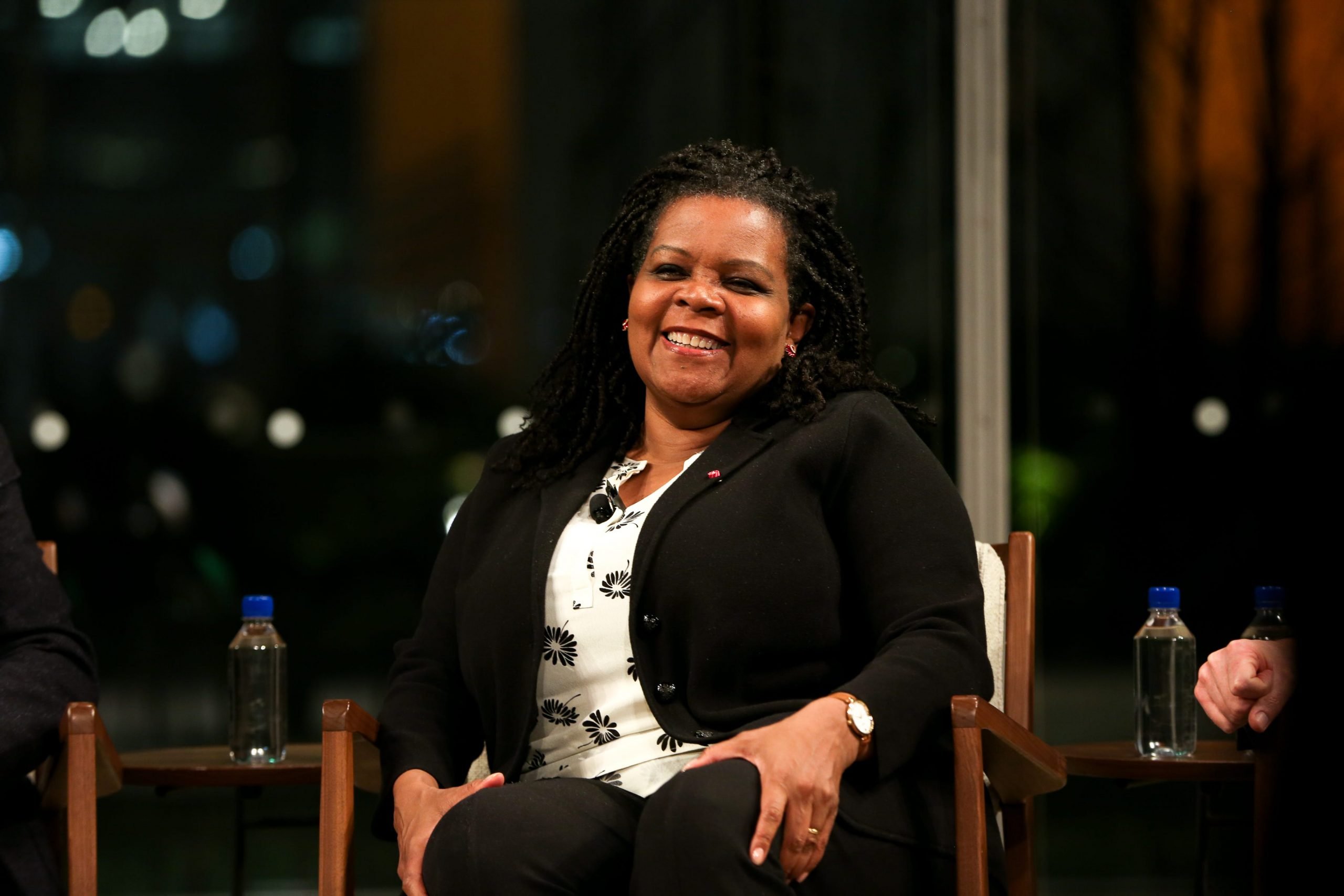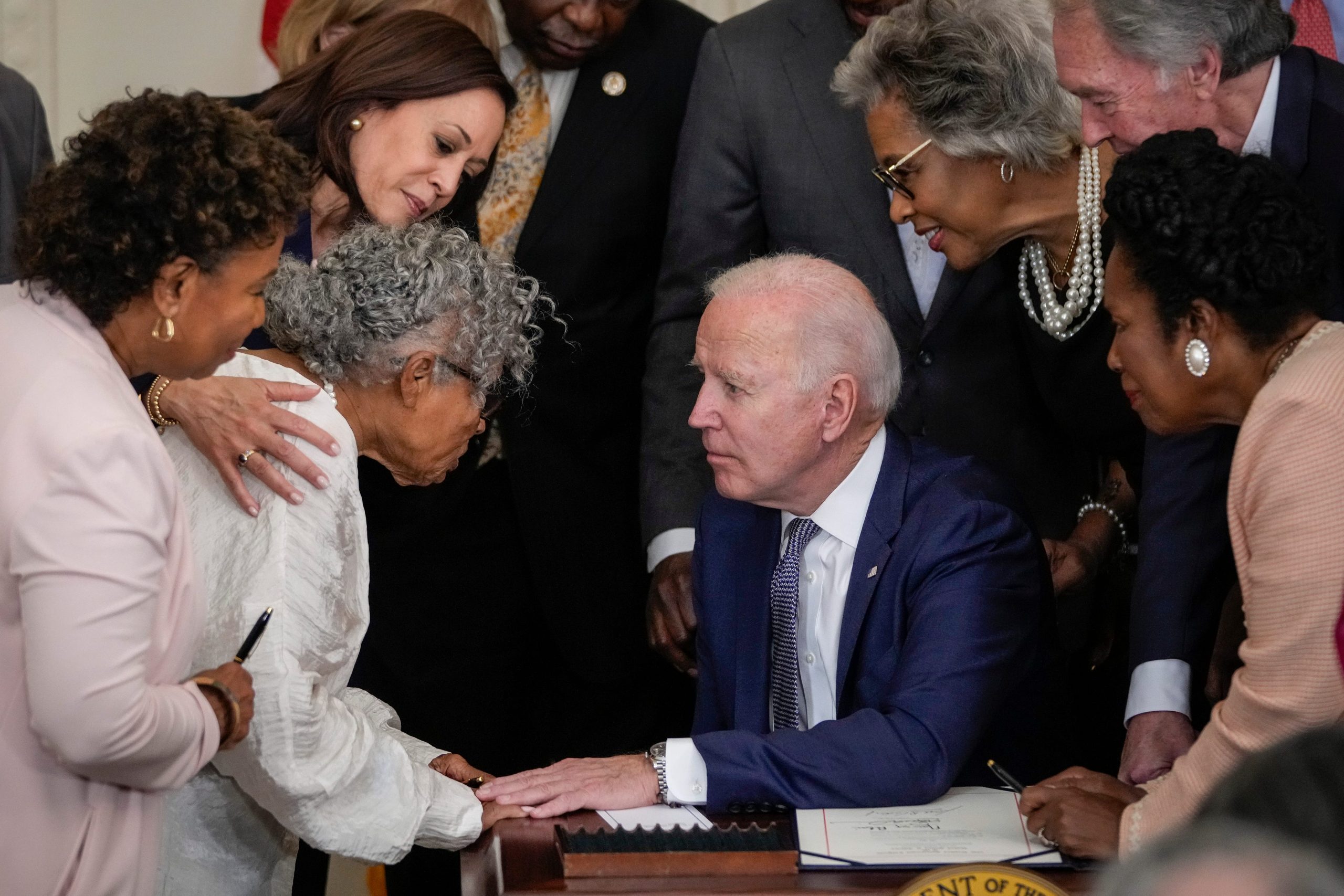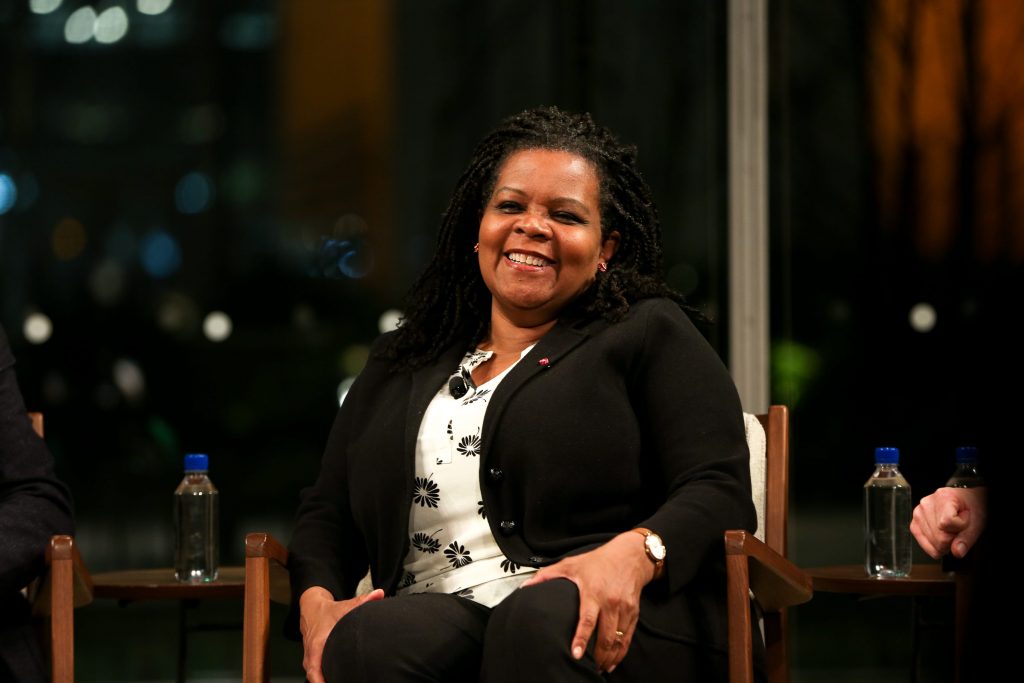
Mike Vitelli/BFA/Reuters
- Annette Gordon-Reed wrote "On Juneteenth," a book that reflects on Texas history and her own story.
- Juneteenth commemorates June 19, 1865, when Union soldiers brought news of freedom to enslaved Black people in Galveston, Texas.
- Gordon-Reed marveled at 94-year-old activist Opal Lee, who pushed for a holiday for years.
- See more stories on Insider's business page.
Last month, President Joe Biden signed into law a bill that established Juneteenth as a federal holiday, the culmination of a decadeslong effort for national recognition of one of the most consequential days in US history.
Juneteenth commemorates June 19, 1865, when Union soldiers brought news of freedom to enslaved Black people in Galveston, Texas, two months after the end of the Civil War and two and a half years after the Emancipation Proclamation.
While June 19 did not erase the plight of Black Americans, it gave the formerly enslaved renewed affirmation and hope.
In "On Juneteenth," the Pulitzer Prize-winning historian and Harvard Law School Professor Annette Gordon-Reed, a Texas native, uses historical context and her personal background to explore how the celebration has influenced her life story.
Part of her journey was shedding the notion of Juneteenth being a wholly Texan affair, which was rooted in the strong sense of pride among natives.
"When I went away to college and found out that there were people celebrating [Juneteenth] in other places, I did feel a little possessive about it," she said. "I changed when I realized that it's something that's worth celebrating for everybody."
Gordon-Reed recently spoke with Insider about what it meant to see the bill signed at the White House, how Juneteenth can be taught in schools, and how the ideals of the celebration can be maintained going forward. Below are edited excerpts from that interview.
Q: In the book, you discuss how you grew up treasuring the specialness of Texas, which initially made you protective of Juneteenth. You soon came to embrace the larger role that Texans played in pushing Juneteenth to become a national holiday. How did it make you feel to see this celebration finally become a federal holiday?
It has been just amazing to see the holiday happen. It happened so quickly. After the House and Senate voted, I got an email from the White House inviting me to come down to Washington, DC, for the signing ceremony. It was just extraordinary to have all these people in the East Room who were happy about this - we've been through so much in the past year with the pandemic. I think it will be good for the country to have a day to reflect on slavery and the end of slavery.
What was it like to see President Biden kneeling to greet and honor Opal Lee, the 94-year-old Texas native who has been advocating for a national Juneteenth holiday for years?
Well, the first thing that I was impressed with is how easily he got down and got up. I don't know if I could do that. Opal worked so hard to make Juneteenth a national holiday. To see her in the room with the president paying special attention to her, bringing her onstage, and giving her a pen, was just thrilling. She got to see something that she put in motion come to fruition.

Drew Angerer/Getty Images
The story of Juneteenth, of course, has to include a discussion about slavery in the US. However, there is now a national debate over the way in which race can be taught in K-12 classrooms, along with critical race theory, which examines how the legacy of racism continues to reverberate through laws and policies that exist today. How can Juneteenth be fully explored in a K-12 environment amid the debate over race in education?
Now that it's a national holiday, you have to be able to discuss Juneteenth. I don't see any way around it. There will be challenges to some of those [anti-critical race theory] laws too, and some of them seem to be blatantly unconstitutional. Over the course of doing events for "On Juneteenth," I saw that there are so many books for kids about Juneteenth at almost every level, from kindergarten and first grade to young adults. There are people out there who are talking about it in an age-appropriate way.
You recently wrote an opinion essay in The New York Times about the connection between Juneteenth and July 4, where you mentioned the archived 1920s-era footage of Black Americans marching in a Juneteenth parade in Beaumont, Texas. What were your first reactions when you saw the clip?
It was deeply moving. I know how tough Texas was in 1925 for Black people. I just felt very proud of them, with the sort of resilience in the face of all that I know that's going on in that time period. There's Jim Crow. There are lynchings in parts of Texas. And they're there, continuing on with tremendous faith. Some of them are waving American flags. They're saying, "We are citizens of this place and this is where we belong."
Many have remarked that they don't want to see Juneteenth become just another holiday, where its true meaning becomes lost or muddled. What can people do to ensure that the legacy of Juneteenth lives on?
I think that members of the Black community who know about Juneteenth and care about it will continue to make the holiday what it's always been. I'm pretty confident about this. I have a feeling that the people who have been doing this for years will teach and exhort the rest of the country to take it seriously.
